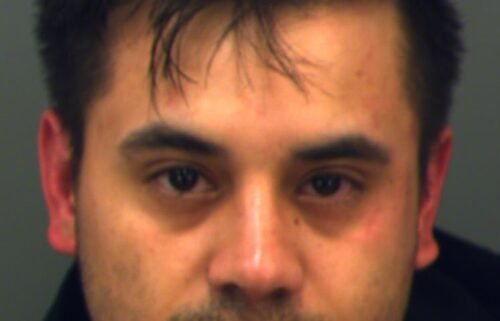Texas inmate executed for stabbing deaths of 2 stepsons and wife, rape of stepdaughters
A Texas inmate who claimed he was intellectually disabled was executed Wednesday for fatally stabbing his two stepsons during an attack more than 12 years ago in their Dallas home that also left his wife dead.
Robert Sparks, 45, received a lethal injection at the state penitentiary in Huntsville for the September 2007 slayings of 9-year-old Harold Sublet and 10-year-old Raekwon Agnew. He became the 16th inmate put to death this year in the U.S. and the seventh in Texas.
“I am sorry for the hard times. And what hurts me is that I hurt y’all … even y’all, too,” Sparks told relatives and friends, turning his head at one point to address his relatives and friends as well as the family members of his victims who watched through separate death chamber windows.
As the lethal dose of pentobarbital began, he said, “I love you all” and then added, “I feel it.”
He took two deep breaths almost immediately, snored three times and then all movement ceased. He was pronounced dead 23 minutes later, at 6:39 p.m. CDT.
Seven more executions are scheduled this year in Texas, the nation’s busiest capital punishment state.
Prosecutors said Sparks’ attack began when he stabbed his wife, 30-year-old Chare Agnew, 18 times as she lay in her bed. Sparks then went into the boys’ bedroom and separately took them into the kitchen, where he stabbed them. Raekwon was stabbed at least 45 times. Authorities say Sparks then raped his 12- and 14-year-old stepdaughters.
The U.S. Supreme Court declined a request by Sparks’ attorneys to stop the execution. They had alleged his trial jury was improperly influenced because a bailiff wore a necktie with an image of a syringe that showed his support for the death penalty. Sparks also alleged a prosecution witness at his trial provided false testimony regarding his prison classification if a jury chose life without parole rather than a death sentence.
On Tuesday, the 5th U.S. Circuit Court of Appeals declined to stop his execution on claims he’s intellectually disabled, saying his attorneys had not presented sufficient evidence to show Sparks is mentally disabled and his attorneys had failed to raise such a claim in a timely manner.
In August, the 5th Circuit did grant a stay for Dexter Johnson, another Texas death row inmate who also claims he is intellectually disabled. In that case, the appeals court ruled Johnson had made a sufficient showing of possible intellectual disability that needed further review.
“My co-counsel and I may have lost this battle, but we remain undeterred soldiers in the enduring war for capital conviction integrity,” said Seth Kretzer, one of Sparks’ appellate attorneys.
After his arrest, Sparks told police he fatally stabbed his wife and stepsons because he believed they were trying to poison him. Sparks told a psychologist that a voice told him “to kill them because they were trying to kill me.”
Sparks’ lawyers had argued he suffered from severe mental illness and had been diagnosed as a delusional psychotic and with schizoaffective disorder, a condition characterized by hallucinations.
A psychologist hired by Sparks’ attorneys said in an affidavit this month that Sparks “meets full criteria for a diagnosis of” intellectual disability.
“Without a stay of execution, it is likely that Texas will execute an intellectually disabled man,” Kretzer and Jonathan Landers, Sparks’ appellate attorneys, wrote last month in court documents.
The Supreme Court in 2002 barred execution of mentally disabled people but has given states some discretion to decide how to determine intellectual disability. However, justices have wrestled with how much discretion to allow.
The Texas Attorney General’s Office, which called the killings “monstrous crimes,” said in court documents that Sparks’ “own trial expert testified that he was not intellectually disabled.”
His attorneys said that at the time of his trial, Sparks was not deemed intellectually disabled, but changes since then in how Texas makes such determinations and updates to the handbook used by medical professionals to diagnose mental disorders would have changed that.
On whether Sparks’ jury was improperly influenced by the bailiff’s necktie with an image of a syringe, the attorney general’s office said the jury foreperson indicated she never saw the tie and had no knowledge of it affecting the jurors.
The attorney general’s office said the testimony from the prosecution witness on prison classification was corrected on cross-examination.
“Sparks committed a heinous crime which resulted in the murders of two young children. He is unable to overcome the overwhelming testimony” in his case, the attorney general’s office said in its court filing with the Supreme Court.
AP Only 2019



